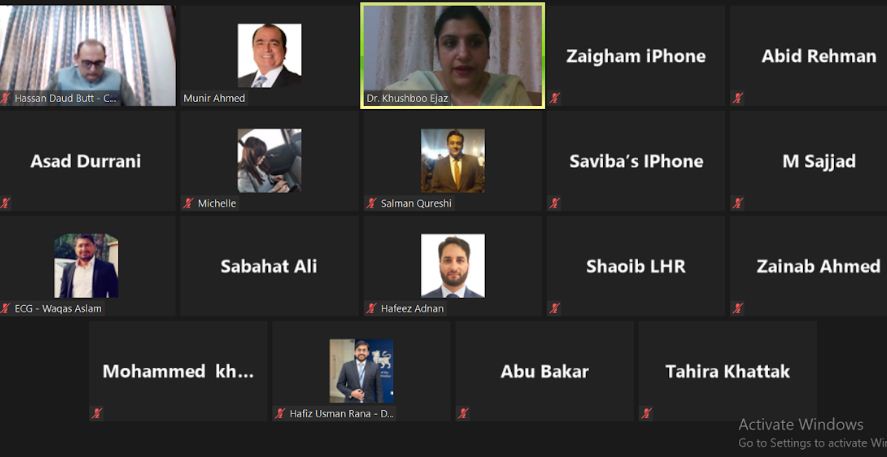DNA
Islamabad – Speaking at a webinar on Saturday, the panelists envisaged Pakistan’s stronger bilateral strategic and economic partnership with China in the coming years. The China-Pakistan Economic Corridor (CPEC) projects would play a central role in domestic economic productivity, connectivity with the countries in the region and beyond, and mutual strategic collaboration against the hegemonic designs against China, Pakistan, and peace and prosperity of the region.
They said Pakistan and China have enjoyed mutual trust and respect for decades, and have played a role in supporting each other on different forums. Pakistan played a backbone role for bridging China-US relations as far back as the 1960s. Many are the Chinese models of development and citizens’ engagement for the economic productivity that could be followed by Pakistan.
Development Communications Network (Devcom-Pakistan) and DTN organized the webinar on the subject “Pakistan-China diplomatic relations beyond 70” on Saturday. The panel of experts included Lt. General rtd Muhammad Asad Durrani, Lt. General rtd Talat Masood, CEO Khyber Pakhtunkhwa Board of Investment and Trade (KPBIOT) Hassan Daud Butt, educationist Dr Khushboo Ejaz, water and environment expert Dr Zaigham Habib, and Devcom-Pakistan Executive Director Munir Ahmed who also moderated the webinar.
Devcom-Pakistan Executive Director Munir Ahmed while introducing the subject said it is the moment that Pakistan shall think of the future of Sino-Pak tires and develop a strategic framework for different sectors, and the set the yearly targets. Pakistan needs to have a well-defined social sector development plan to engage its rural communities, develop cottage industry and promote its ICT exports. The Chinese development models would be a great source of help and institutional collaboration.
Lt. General rtd Muhammad Asad Durrani said Pakistan and China has to play very significant role in the region, and their strategic partnership can add more value to efforts being taken out for peace and prosperity of the region. India has to take some rational decisions on the Kashmir issue and bilateral relations with the neighboring countries. Pakistan has to take vigorous measures to make it economically more viable and stronger in the comity of nations if it likes to be noticed and valued.
He said the G-7 Build Back Better World (B3W) cannot challenge the Belt and Road Initiative (BRI) in any way. The B3W has its own scope and mandate while BRI has its own significance. Economic war between the US and China may intensify in the coming years while Pakistan has to balance wisely while dealing with the US resolve. It is for sure that Pakistan cannot go against the all-weather friend China but cannot afford to lose ties with the USA.
Lt. General Rtd Talat Masood said the US and West in general knows that China is not only an economic power but has raised its strategic and military capacity as well. Therefore, the new cold war even if intensified has less chances to convert into hot pursuits. The G-7 countries and the West cannot afford to lose China as their economic and trade partner. Inviting India to the G-7 recent meeting does not mean that it can replace China in any case or support the G-7 and the Western market as China has been contributing to. India-US ties may affect the peace in the region but cannot sabotage the CPEC, the flagship project of the BRI.
Hassan Daud Butt highlighted that Pakistan’s relation with China has never been a transactional one and has grown from strength to strength and has withstood the test of time. We are not just neighbours but much beyond from the very beginning and particularly it is based on win-win, mutual trust and a relationship of brotherhood. Since the 1960s, the two countries began to forge a close relationship of understanding which has remarkably been constant despite the many challenges. CPEC is now making it into an economic partnership and this partnership will bring great economic dividends and will address challenges of poverty, economic growth and sustainable development. Pakistan and China maintain great people to people contacts and those are also strengthening through CPEC. It is vital that the next generation share the history of the great strategic partnership so that it maintains constant growth.











